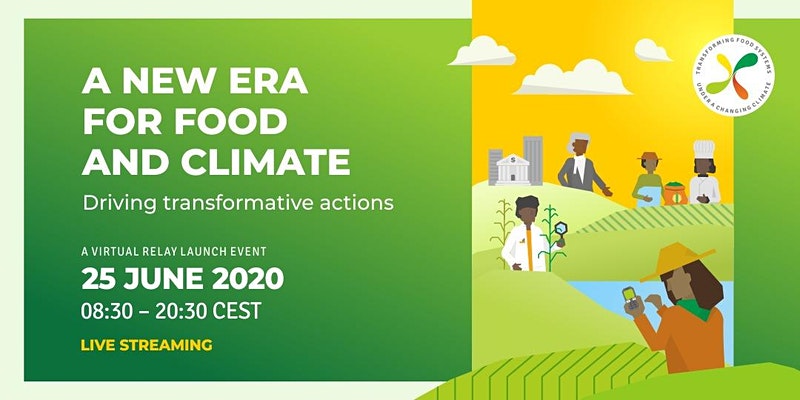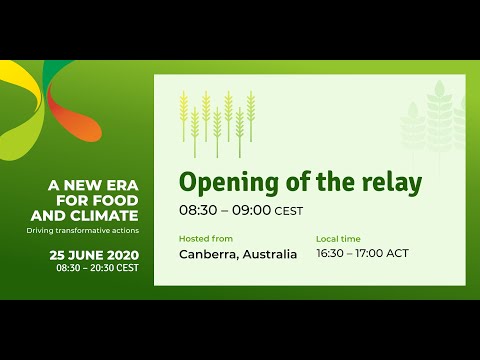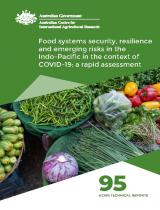Global relay to kick start a new era for food, health and climate resilience

Strategic action in many countries is needed to prevent an impending food emergency as a result of COVID-19. The pandemic, like climate change, has exposed global food system vulnerabilities. Australia’s great strengths in agricultural science are an important asset in helping our neighbours to prevent a health crisis becoming a food crisis.
This is the key message of Professor Andrew Campbell, CEO of the Australian Centre for International Agricultural Research (ACIAR) and co-author of an international report that proposes a roadmap to avoid a series of climate-induced food crises. Professor Campbell will launch the report when he kicks off an around-the-world virtual relay event.
A new era for food and climate: Driving transformative actions is a global online relay with food security and sustainability experts addressing over 20,000 live viewers around the world. Organised by the CGIAR Research Program on Climate Change, Agriculture and Food Security, the globe-trotting livestream event will start in Australia at 4.30pm in Canberra on 25 June, and progress to Vietnam, India, Ethiopia, Italy, Netherlands, Scotland, Mali, USA, and Canada, concluding in Colombia 12 hours later.
“I’m excited to launch this international event and this report, which is an action plan focused on farming, diets, policy options and trade. It flags the need for partnerships, investment and action to tackle the current food crisis exacerbated by COVID-19, and avert future food insecurity from changing climates,” said Professor Campbell, who heads Australia’s key organisation supporting agricultural transformation in the region.
“Our food systems were under pressure from climate change before COVID-19, but the pandemic has further exposed lack of resilience and key risks. This report “Actions to Transform Food Systems Under Climate Change,” provides a roadmap to manage the risk of future crises. Such crises would be a humanitarian disaster and a major threat to the security, stability and economic recovery of our region.”
“We need to strengthen food systems if we are to feed the world’s current and future population enough safe, heathy food sustainably under climate change,” said Professor Campbell.
“Australian farmers are already experiencing pressure on agriculture and food systems due to climate change, climate variability and extreme weather. COVID-19 has further increased that pressure in many countries.”
“Australia has so much to offer our region in terms of innovative approaches to farming in tough and variable climates.”
He noted that as part of the event, CSIRO will present findings from their investigation of 75 emerging technologies which have identified an arsenal of highly promising options, many of them ready or near-ready.
“Australia has already played an important role in spreading the adoption of climate-smart agricultural innovations such as conservation cropping systems in the Eastern Gangetic plain of India, Bangladesh and Nepal. As more countries are experiencing climate volatility, Australian know-how can be a significant export opportunity,” he concluded.
The event is being live-streamed via the CCAFS Facebook page, LinkedIn page, and YouTube Channel.




